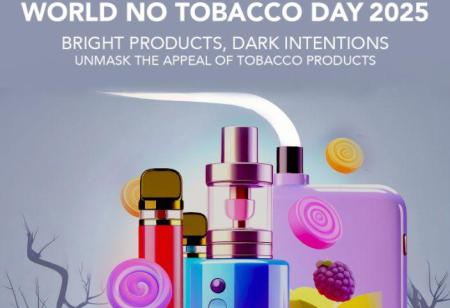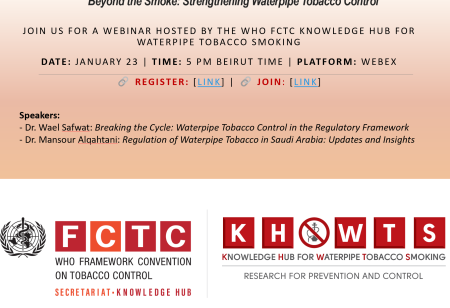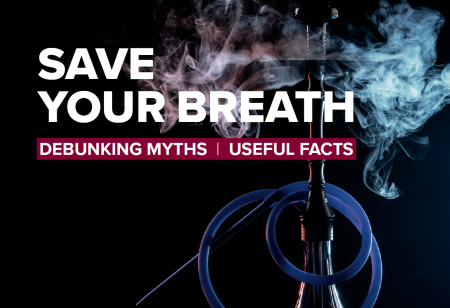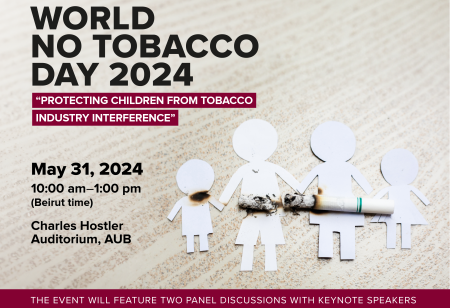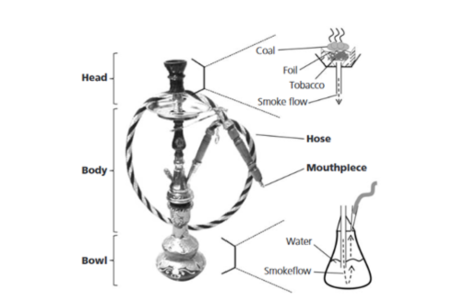
Towards understanding the Waterpipe Industry in the Middle East - 7 April 2021
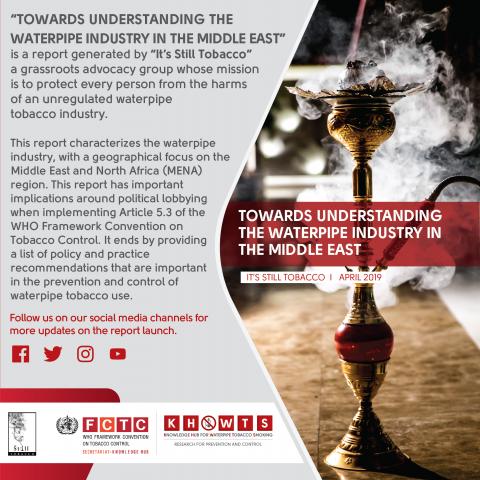
Click to Read the Full Report
STILL TOBACCO REPORT
ABOUT IT’S STILL TOBACCO
It’s Still Tobacco is a grassroots advocacy group whose mission is to protect every person in the UK from the harms of an unregulated waterpipe tobacco industry. We aim to do this by becoming an authoritative source of waterpipe tobacco information and by advocating for stronger implementation of tobacco laws on the waterpipe industry.
We are a group of passionate community members with expertise ranging from medicine, public health, marketing, and law. We are ethnically diverse and many of us grew up in communities where waterpipe tobacco was and still is extremely common.
We are funded by community grants from the Big Lottery Fund and the Co-op Local Community Fund. We declare no conflicts of interest and have no ties to the tobacco industry or tobacco industry-funded organizations.
You can find out more about the group by visiting our website (www.itsstilltobacco.org) or following us on Twitter (@itsstilltobacco.org)
EXECUTIVE SUMMARY
In this report, we aim to characterize the waterpipe industry, with a geographical focus on the Middle East and North Africa (MENA) region. The lack of available data on this industry is well-known, so we used innovative methods to capture relevant information, such as assessing online news reports, discussion forums, restaurant directories, and tobacco industry journals and magazines. Our main focus is the waterpipe tobacco industry with some space dedicated to the waterpipe charcoal industry. Companies of focus are Al-Fakher and Al-Nakhla (currently two of the largest companies globally), and countries of focus include Algeria, Egypt, Morocco, Saudi Arabia, Tunisia, Turkey, and the United Arab Emirates.
We found that the MENA region holds the largest share in most countries globally waterpipe tobacco market. Despite the presence of two major players (Al-Fakher and Al-Nakhla) in most countries, the waterpipe tobacco industry is small and fragmented but growing, with leaders in individual markets
but no monopolies. Reasons for the sharp increases in sales in many markets between 2015 and 2017 are unknown and require further research. All waterpipe tobacco companies assessed, whether based in the MENA region or not, lacked age verifications and health warnings on their websites, and often had misleading marketing content. Waterpipe charcoal companies had similar problems; for them, misleading marketing around their coconut- or bamboo-based products was particularly concerning.
We also found that transnational tobacco companies are intimately linked to waterpipe tobacco companies. Japan Tobacco International purchased Al-Nakhla in 2013, Eastern Tobacco produces waterpipe tobacco as well as common brands for transnational tobacco companies, and Al-Fakher has employed a number of staff with vast experience working for transnational tobacco companies.
The most common marketing strategies of the industry continue to focus on flavors and the social
appeal of waterpipe use, and waterpipe companies readily attend and display these strategies at
international trade exhibitions. Innovations in the industry are at an early stage, with recent
developments including the creation of pre-prepared ceramic heads, expansion of flavor profiles, and the use of dry ice in the manufacturing process. The public face of the industry is, however, the hospitality sector (waterpipe cafes, bars, and restaurants), rather than the waterpipe tobacco companies. We found that online marketing is often dominated by individual waterpipe users and waterpipe cafes rather than by waterpipe tobacco companies, although more research needs to be undertaken on this topic. This has important implications around political lobbying when implementing Article 5.3 of the WHO Framework Convention on Tobacco Control (‘Article 5.3’).
We end the report by providing a list of policy and practice recommendations that are important in the prevention and control of waterpipe tobacco use.
ACKNOWLEDGMENTS
We thank the Tobacco Free Initiative Unit of the Eastern Mediterranean Regional Office for the efforts and role in supporting the initiation and development of this report.

